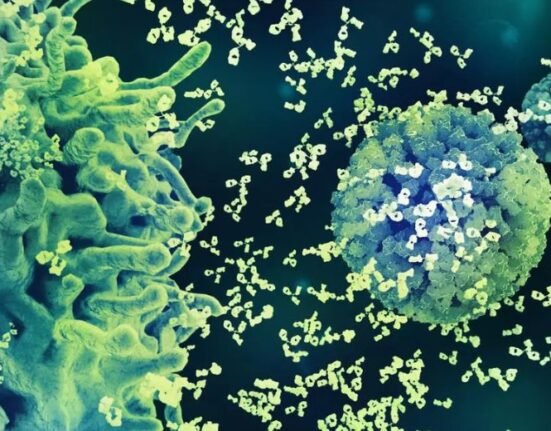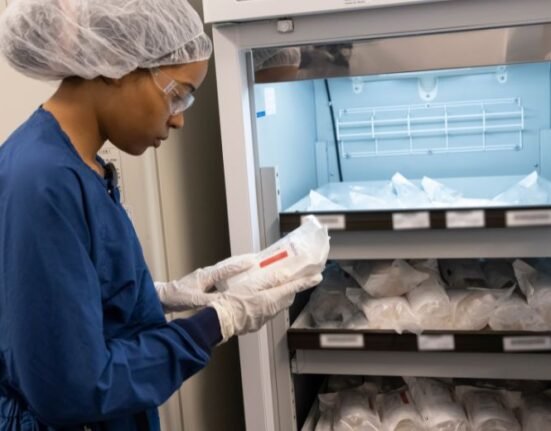HQ Team
September 9, 2024: Summit Therapeutics Inc.’s investigational drug ivonescimab helps lung cancer patients to cut the risk of progression or death from the disease by 48%, the latest results of the company’s trials reveal.
The monotherapy or the single drug treatment ivonescimab was compared with Merck’s Keytruda (pembrolizumab) in an end-stage trial and Summit’s therapy achieved an 11.14-month progression-free survival to Keytruda’s 5.8 months.
The drug is meant to treat PD-L1-positive advanced Non-Small Cell Lung Cancer.
Programmed cell death protein 1 (PD-L1) is a protein on the surface of T cells and other cells. It plays a key role in reducing the regulation of ineffective or harmful immune responses and maintaining immune tolerance.
When it comes to cancer PD-1 can act as a stopping mechanism (a brake or checkpoint) by binding to PD-L1 ligands that exist on tumour cells and preventing the T cells from targeting cancerous tumour cells.
Supress immune system
Programmed cell Death Ligand 1 is expressed by cancerous tumour cells as an adaptive immune mechanism to escape anti-tumour responses and is believed to suppress the immune system’s response to the presence of cancer cells.
Ivonescimab is an investigational therapy that is not approved by any regulatory authority in Summit’s license territories, including the United States and Europe. Ivonescimab was approved for marketing authorization in China in May 2024.
Ivonescimab was engineered by Akeso Inc, and is currently engaged in multiple phase III clinical trials.
The study, conducted on 389 patients in China, was sponsored by the company’s collaboration partner, Akeso and data was generated and analyzed by Akeso.
“We believe this is the beginning of a landscape shift for treatment options for patients living with cancer,” stated Robert W. Duggan, Chairman and Chief Executive Officer of Summit. Based on the results of the study, Summit announced its plan to initiate the next phase of the trial in early 2025.
‘Next-generation” immunotherapy
The results were presented at the Presidential Symposium at the
World Conference on Lung Cancer (WCLC 2024) in San Diego, California on September 8.
The study “clearly demonstrates that ivonescimab has the potential to be the next generation in PD-1 directed immunotherapy, and potentially make a significant difference in the lives of patients with lung cancer and prospectively other tumours,” said Dr Maky Zanganeh, Chief Executive Officer and President of Summit.
Additional phase II data will be presented at the European Society of Medical Oncology Congress 2024 starting in Barcelona, Spain, from September 13 to 1, she said.
At the same time, the study also reported a higher rate of severe side effects for ivonescimab than Keytruda.
About 20.8% of patients who took Summit’s drug experienced treatment-related adverse events that were grade 3 or higher, compared with about 16.1% of the Keytruda arm.
Adverse events
The most frequent treatment-related adverse events ivonescimab treatment were proteinuria (or too much protein in the urine — ivonescimab, 3.0%; pembrolizumab 0.0%), hypertension (ivonescimab, 5.1%; pembrolizumab 0.5%), and various laboratory abnormalities, including hypercholesterolemia, anaemia, and bilirubin increases.
“There was one patient in the ivonescimab arm and two patients in the pembrolizumab arm who died as a result of TRAEs in this Phase III study,” according to the Summit statement.








